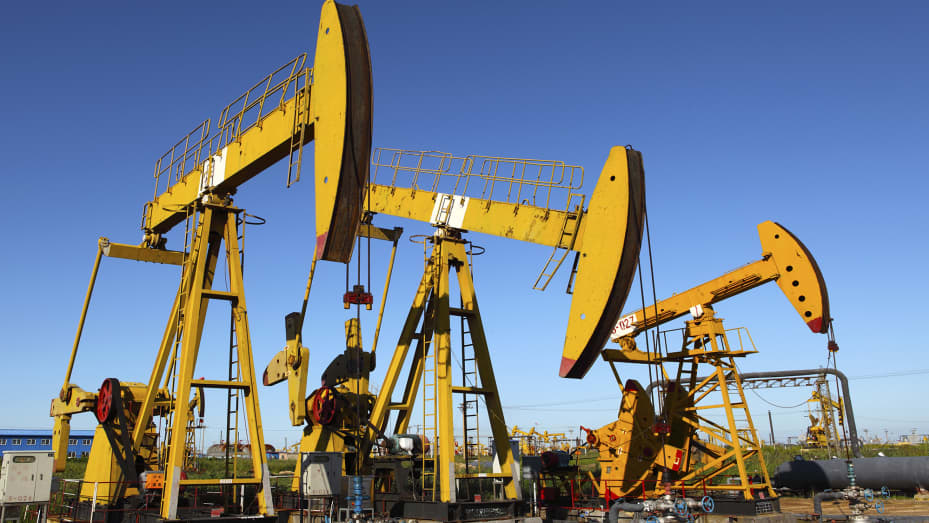Oil prices fell nearly $1 on Wednesday ahead of the U.S. Federal Reserve's interest rate decision, with investors uncertain when peak rates will be hit and how much of an impact it will have on energy demand.
Prices fell despite a bigger-than-expected draw in U.S. oil stockpiles and weak U.S. shale output that indicated tight crude supply for the rest of 2023.
Global benchmark Brent crude futures were last down 88 cents, or 0.9%, at $93.46 a barrel by 0650 GMT. Brent hit $95.96 on Tuesday, its highest since November.
U.S. West Texas Intermediate crude futures shed 1%, or 97 cents, to $90.23 a barrel, after climbing to a 10-month high of $93.74 a barrel the previous day. The October WTI contract expires on Wednesday and the more active November contract was down 82 cents, or 0.9%, to $89.66 a barrel.
"The oil rally is taking a little break as every trader awaits a pivotal Fed decision that might tilt the scales of whether the U.S. economy has a soft or hard landing," said Edward Moya, senior market analyst at data and analytics firm OANDA.
Moya added that the oil market is still "very tight" and will remain so over the short-term.
"Unless Wall Street grows nervous that the Fed will kill the economy, the crude demand outlook should (only) gradually soften, but the oil market will easily have a supply deficit throughout winter."
Investors are awaiting a raft of central bank interest rate decisions this week, including the Fed's at 1800 GMT on Tuesday, to assess the outlook for economic growth and fuel demand. The Fed is widely expected to keep interest rates on hold, but the focus will be on its projected policy path, which is unclear.
U.S. crude oil stockpiles fell last week by about 5.25 million barrels, according to market sources citing American Petroleum Institute figures on Tuesday. Analysts in a Reuters poll had expected a 2.2 million-barrel decline.
"We have nudged up our 12-month ahead Brent forecast from $93 a barrel to $100 a barrel as we now expect modestly sharper inventory draws. The key reason is that significantly lower OPEC supply and higher demand more than offset significantly higher US supply," said Goldman Sachs analysts in a Wednesday note.
"Overall, we believe that OPEC will be able to sustain Brent in an $80-$105 range in 2024 by leveraging robust Asia-centric global demand growth and by exercising its pricing power assertively."
Additionally, Russia's government is considering imposing export duties on all types of oil products of $250 per metric ton - much higher than current fees - from Oct. 1 until June 2024 to tackle fuel shortages, sources told Reuters on Tuesday.
That move comes as U.S. oil output from its top shale-producing regions is on track to fall to 9.393 million bpd in October, the lowest since May 2023, and after Saudi Arabia and Russia extended combined supply cuts of 1.3 million bpd to the end of the year.
On the demand side, India's crude oil imports fell for a third month in a row in August, government data showed on Tuesday, as refiners in the world's third biggest importer carried out maintenance and reduced shipments from Russia.
On supply, Exxon Mobil Corp (XOM.N) has pledged additional oil production of nearly 40,000 barrels per day in Nigeria in a new investment push in the country, a presidential spokesperson said on Tuesday, citing Exxon's president of global upstream operations.












